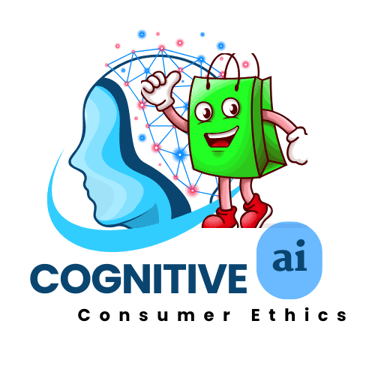
Cognitive AI & Consumer Ethics Lab

Our research lab forms the intellectual backbone of our startup. We conduct interdisciplinary research at the crossroads of cognitive science, AI, and digital consumer behavior.

🧠 Consumer Neuroscience and Ethical Digital Behavior
This area explores how cognitive and neural mechanisms shape consumer responses to digital stimuli such as ads, personalization, or persuasive design. The research focuses on how ethical frameworks can be integrated into digital strategies to protect mental autonomy, prevent manipulation, and ensure fairness in consumer engagement.


📈 Neuromarketing and Responsible Persuasion
Neuromarketing investigates how subconscious neural activity influences consumer decision-making. This research area seeks to balance effective marketing with ethical responsibility, aiming to develop guidelines and tools for “responsible persuasion” — ensuring that campaigns influence without exploiting cognitive vulnerabilities.


🤖 AI-Based Decision Modeling for Ethical Consumer Engagement
This stream develops AI models that simulate human decision-making in digital environments. The goal is to embed ethical principles - such as transparency, accountability, and user agency - into AI systems that guide consumer choices, such as product recommendations or content delivery.


⏱️ The Rise of Ethical Convenience
This project examines how time-starved, digitally overwhelmed consumers make quick choices in fast-paced online environments. It investigates how convenience-driven behaviors affect ethical decisions (e.g., choosing sustainable products) and how digital platforms can support more mindful and sustainable consumption without adding friction.


🧩 Mental Models and Ethical Nudging
This area explores how consumers form mental models of digital systems and how those models influence trust, decision-making, and ethical perception. The research seeks to design “ethical nudges” — interventions that respect user freedom while encouraging choices that are in their best interest (e.g., healthier habits, truthful news, sustainable shopping).


